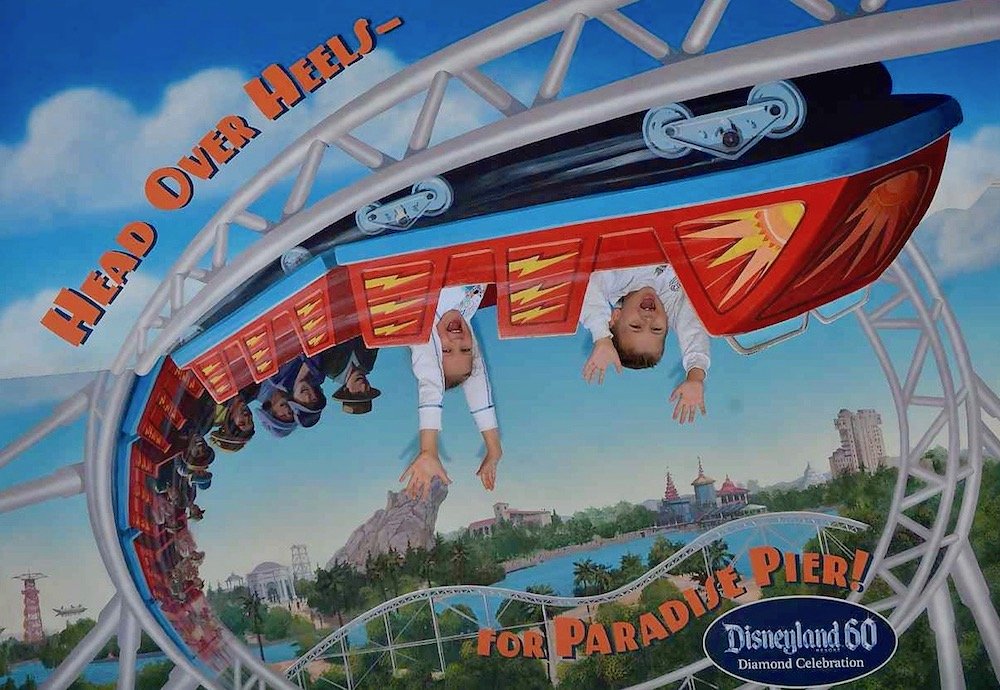Traveling with your children can be one of the most awe-inspiring experiences you will have. As a child who often traveled — and now as a parent who travels with their children — I hope each of you can revel in the opportunity to expose your own family to new cultures, unique microcosms of natural beauty and the magnificent diversity that makes this world such a charming and diabolical place. Not only can traveling together create lifelong bonds of friendship and mutual respect with your children, but it can also expose them to some of the best lessons in life. And let me tell you, they aren’t found in any classroom.
Many people are quick to overlook the value of the less-convoluted adventures. Your vacation doesn’t need to be aesthetically complex to be worthy of having lasting positive effects on your children’s thinking. The opportunity to inspire and take advantage of developmentally provocative experiences can be unearthed in the simplest moments of your travels. All it requires is the presence of mind for both child and parent.
I know it can be hard. We spend our lives more concerned than ever about the welfare of our families, our taxes, and mortgages. The truth is, our children spend a lot of their time attempting to cope and contend with our world, it is about time we start spending more of our time in theirs.
Despite what some more judgmental peers may have you believe, planning your Disney vacation provides no fewer life lessons than any other trip. In fact, I would challenge that notion even further to say it might even offer more teaching moments. The ability to learn from our activities lies in the amount of effort we are willing to invest in them. That presence of mind mentioned above means a conscious decision to be accessible for your child in each moment of your travels, rather than ticking the boxes and later saying, “We’ve been there.”
The value of any shared experience will depend significantly on the interactive component of your social dynamic. The more you invest, the more you, and your children, will gain.
Disney vacations are fantastic opportunities for children to learn. While they may not expose them to a significant culture shock, there is an abundance of questions to be asked at every turn. With every query comes the opportunity for a mind-expanding conversation that will stay with you both for life.
Disney isn’t just about princesses and churros — it’s about taking time away from your everyday routine and spending it with people you love. It’s about taking relationships and turning them into bonds. It’s about the moments that can be found in between the reasons why you thought you wanted to go in the first place.
Disney allows families to teach their children some of the most basic and essential lessons in life: tolerance, acceptance, appreciation, and patience. These are things we strive to instill in our children at home, but how often are we able to give them real-world opportunities to transform these lessons into actions?

We hope to help our children develop patience, that all good things are worth waiting for. So when the payoff is as exciting as their favorite ride at Disney, the value of this sentiment becomes a reality. Most children will rise to the occasion and learn to wait. While waiting, we are taking in many different calculations. We adjust our voices to appropriate levels and practice being quiet in waiting rooms where videos may be playing. We subconsciously learn about spatial awareness around our bodies while being in close proximity to others in a moving line. Even if these things require prompting from the parent, the idea is still in practice for the child. In fact, this brings me to my next point.
The line is a time of isolation where your party becomes a captive audience for each other. Now let’s turn that captive audience into a captivated one with a little bit of enthusiasm and a commitment to listen. Our children all have their moments of being incredibly annoying. Anyone who says otherwise is either lying or doesn’t have children. But sometimes, if you make a conscious effort to put down your electronic devices, clear your mind and pay attention to them rather than feel disrupted by them, that is when the magic happens.
You may have a child-like my son who has a mind for engineering, thriving in an environment where he can observe moving structures and analyze how and why they work from different angles. He may ask questions about physics and mechanics that give you an insight into who this little person in front of you may grow up to be. He might even teach you a thing or two, leaving him with a sense of satisfaction and confidence.
Or, you might have a child like my daughter who picks up on everything, including the smallest details, committing each one to memory to draw back on later at home. This child may be the one that you spend the next ten years reminiscing with as she remembers such vivid impressions of every part of your trip. These memories might inspire her to become an architect or interior designer who has a natural ability to connect with her surroundings and find the beauty in them.
The possibilities are endless. Let your children bring you into their world. If the conversations aren’t flowing naturally, initiate them. Ask the thought-provoking questions that may have them wondering, “Actually, how does that work?” Ask them their opinion about something, anything, and then take the time to listen to the answers.
Disney is also a great place to vacation with a cross-section of tourists from all over the world. You may come across people with a different lifestyle than you are familiar with at home, different cultures, races, languages. Now is a great time to show your children acceptance and encourage them to ask you questions. Quietly and appropriately, of course. You may not agree with the methods or madness of everyone around you; however, there is a lesson in that for your family as well. Learning to accept that there is no one right way to be. After all, it is easy to be accepting of everyone around you when you are surrounded by a like-minded, similarly cultured community at home.
Sometimes communicating with people from other places can be hard, but a smile is universal. If there is a language barrier, be patient and encourage the foreign party to take their time. You never know what relationships you may form with strangers along the way. It is not uncommon for families to make overseas connections in Disney parks; parents become friends and children become pen-pals. You never know where life can take you if you are open to it.

Photo by Priscilla Du Preez on Unsplash
The demonstrations of social tolerance and acceptance are not limited to positive examples. There is nothing quite like attempting to find a diplomatic approach to a stressful situation where other people are behaving in a less-than-ideal manner. These are the times when your children are watching you more closely than ever. These moments are when examples are made that can shape how your child reacts to their own moments of frustration for years to come. How is this different from being at home? Because your child is super engaged with their surroundings. This is not another day at the supermarket when someone races in front of you at the counter but your child has already emotionally checked out, dreaming of going home to play Minecraft. On vacation, the Disney experience has your kids in tune with all the stimulation around them and hypersensitive to each action and reaction you may contribute to it. They are watching and learning.
I mentioned earlier that you wouldn’t find these lessons in the classroom at school, but that doesn’t mean you can’t bring some of those classroom teachings into the parks with you. When learning can be teamed up with a subject matter that has your child’s interest, things start to sink in. As you reach the 10-minute line to purchase that toy your child wants, use the time to have your them work out how much money they owe. How much change will there be? If you have an older child, what will the tax on this purchase work out to be?
When the temptation of a physically larger purchase arises it is not just a question of “can I afford this?” but also “how can I get this home?” Make them responsible for their possessions and encourage thinking of available space and planning ahead, not just how much money they have. Before you know it, you are watching your kids practice skills in math, economics, budgeting, spatial planning and thought-out decision making.
When returning from our travels, the most significant developmental advancement that I attribute to Disney Parks is my children’s increased ability to cope — cope with people, school, noises, frustration, routine and more. I also notice an increase in their creativity as they draw inspiration from the things they have seen and done. Before long, my son is recreating ride structures and pulley systems out of Lego and my daughter is applying her mind for creating and planning towards future small business ventures.
When on vacation, be emotionally available to your children, and you will spend less time being frustrated by them and more time being in awe of how their little minds absorb information and expand while you are in the parks. The real magic of Disney isn’t visible in any ride photo or parade. It lies in those moments in between. The special ones that you can only recognize if you are present in the moment. The best part is, once you find them, they are yours to keep and from there, a whole new world lies ahead.

Photo by Jenn Evelyn-Ann on Unsplash

